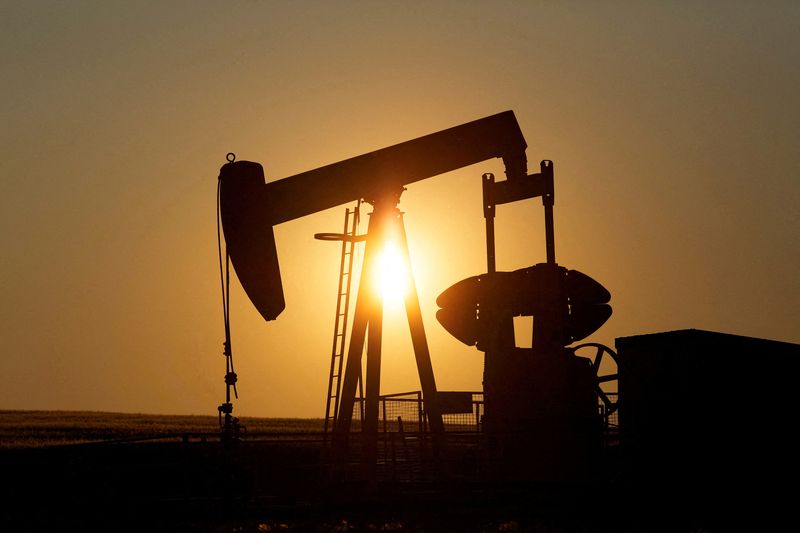By Arathy Somasekhar
HOUSTON (Reuters) - Oil prices rose about 3% on Monday, as OPEC+ members agreed to a small production cut of 100,000 barrels per day to bolster prices.
Brent crude futures for November delivery settled $2.72 higher at $95.74 a barrel, a 2.92% gain.
Prices had climbed nearly $4 earlier in the session, but were tamed by comments from the White House that U.S. President Joe Biden was committed to taking all steps necessary to shore up energy supplies and lower prices.
U.S. crude rose $2 to $88.85 per barrel, a 2.3% rise after a 0.3% gain in the previous session, in thin volumes during the U.S. Labor Day holiday.
The 100,000 barrels per day (bpd) reduction by the Organization of the Petroleum Exporting Countries (OPEC) and its allies, a group known as OPEC+, amounts to only 0.1% of global demand. The group also agreed they could meet any time to adjust production before the next scheduled meeting on Oct. 5.
"It's the symbolic message the group wants to send to the markets more so than anything," said Oanda analyst Craig Erlam, adding that the 100,000 bpd raise last month by OPEC+ was not seen as a big deal.
"What we've probably seen from the markets was pricing in most of the worst-case scenario," Erlam added.
Top OPEC producer Saudi Arabia last month flagged the possibility of output cuts to address what it sees as exaggerated oil price declines.
Russian Deputy Prime Minister Alexander Novak said that expectations of weaker global economic growth were behind a decision by Moscow and its OPEC allies to cut oil output.
Russian Energy Minister Nikolai Shulginov said the country would most likely reduce its oil production by around 2% this year, TASS news agency reported.
"The bigger picture is that OPEC+ is producing well below its output target and this looks unlikely to change given that Angola and Nigeria, in particular, appear unable to return to pre-pandemic levels of production," Caroline Bain, chief commodities economist at Capital Economics, said.
Oil prices have fallen in the past three months from multi-year highs hit in March, pressured by concerns that interest rate increases and COVID-19 curbs in parts of China could slow global economic growth and dent oil demand.
Lockdown measures in China's southern technology hub of Shenzhen eased on Monday as new infections showed signs of stabilizing though the city remains on high vigilance.
Meanwhile, talks to revive the West's 2015 nuclear deal with Iran, potentially providing a supply boost from Iranian crude's returning to the market, have hit a new snag. The White House on Friday rejected Iran's call for a deal to be linked with closure of investigations by the U.N. nuclear watchdog, a Western diplomat said.
Iran's minister of petroleum said the global energy market needs an increase in supply of oil from Iran.

Use of oil in power generation is also expected to pick up, analysts said, as Russia's state-controlled Gazprom (MCX:GAZP) on Friday said it would stop pumping gas via the Nord Stream 1 pipeline due to a fault.
The International Energy Agency last month raised its oil demand forecast for the year, partly because it expects gas-to-oil switching in some countries due to record natural gas and electricity prices.